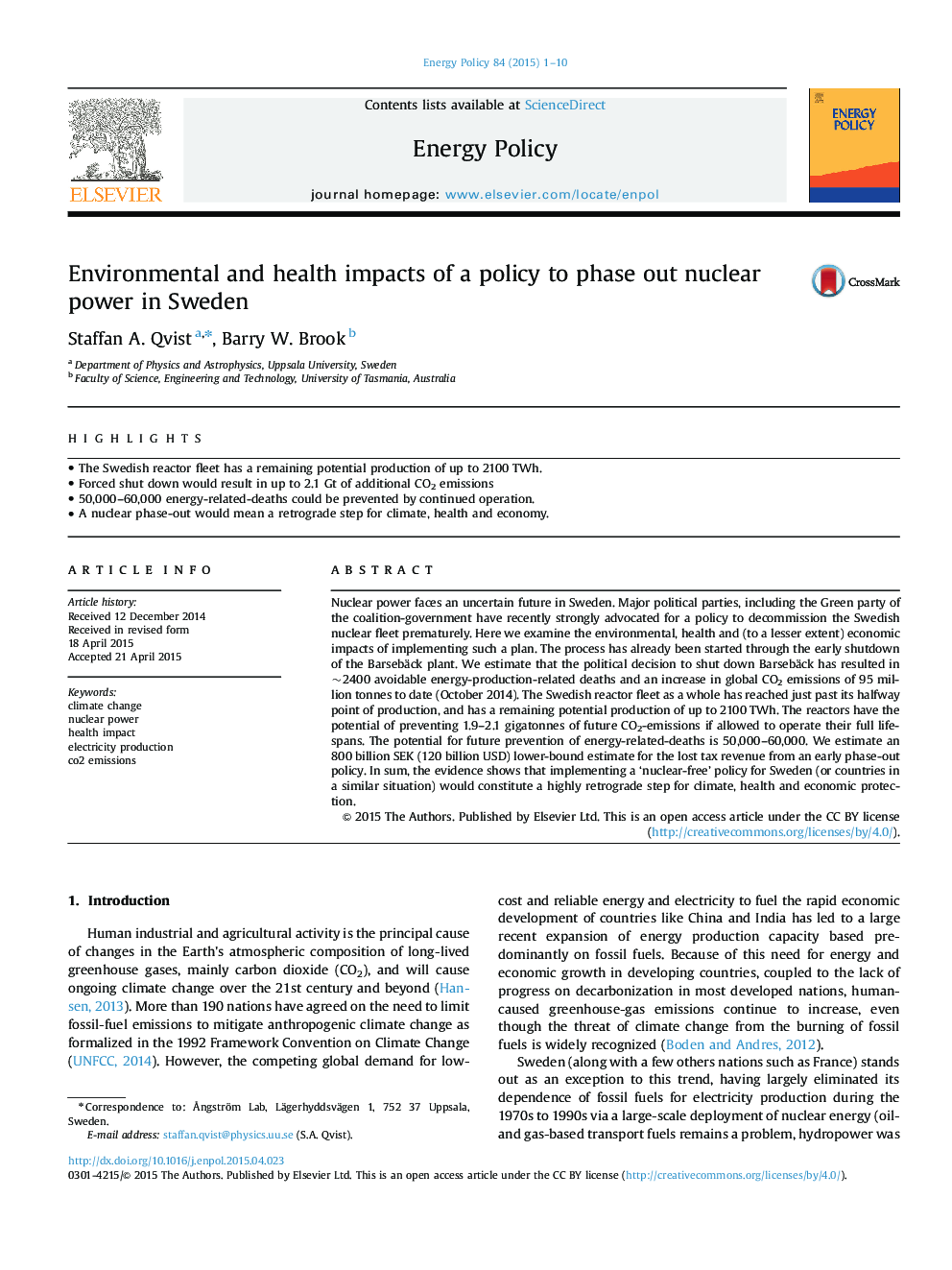| Article ID | Journal | Published Year | Pages | File Type |
|---|---|---|---|---|
| 7400824 | Energy Policy | 2015 | 10 Pages |
Abstract
Nuclear power faces an uncertain future in Sweden. Major political parties, including the Green party of the coalition-government have recently strongly advocated for a policy to decommission the Swedish nuclear fleet prematurely. Here we examine the environmental, health and (to a lesser extent) economic impacts of implementing such a plan. The process has already been started through the early shutdown of the Barsebäck plant. We estimate that the political decision to shut down Barsebäck has resulted in ~2400 avoidable energy-production-related deaths and an increase in global CO2 emissions of 95 million tonnes to date (October 2014). The Swedish reactor fleet as a whole has reached just past its halfway point of production, and has a remaining potential production of up to 2100Â TWh. The reactors have the potential of preventing 1.9-2.1 gigatonnes of future CO2-emissions if allowed to operate their full lifespans. The potential for future prevention of energy-related-deaths is 50,000-60,000. We estimate an 800 billion SEK (120 billion USD) lower-bound estimate for the lost tax revenue from an early phase-out policy. In sum, the evidence shows that implementing a 'nuclear-free' policy for Sweden (or countries in a similar situation) would constitute a highly retrograde step for climate, health and economic protection.
Related Topics
Physical Sciences and Engineering
Energy
Energy Engineering and Power Technology
Authors
Staffan A. Qvist, Barry W. Brook,
